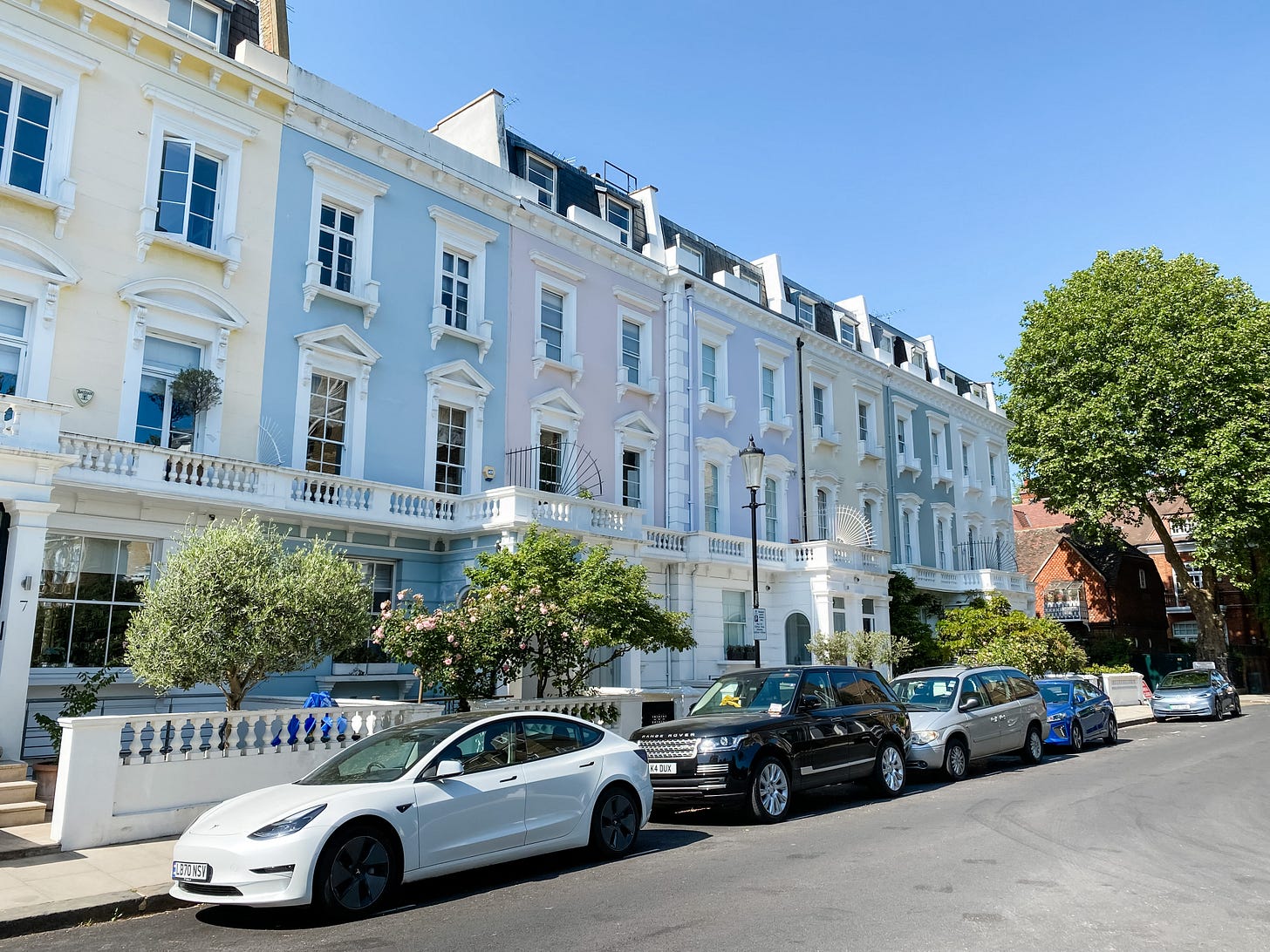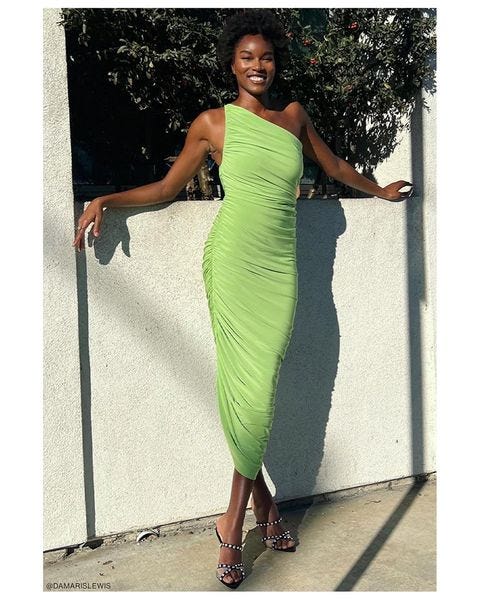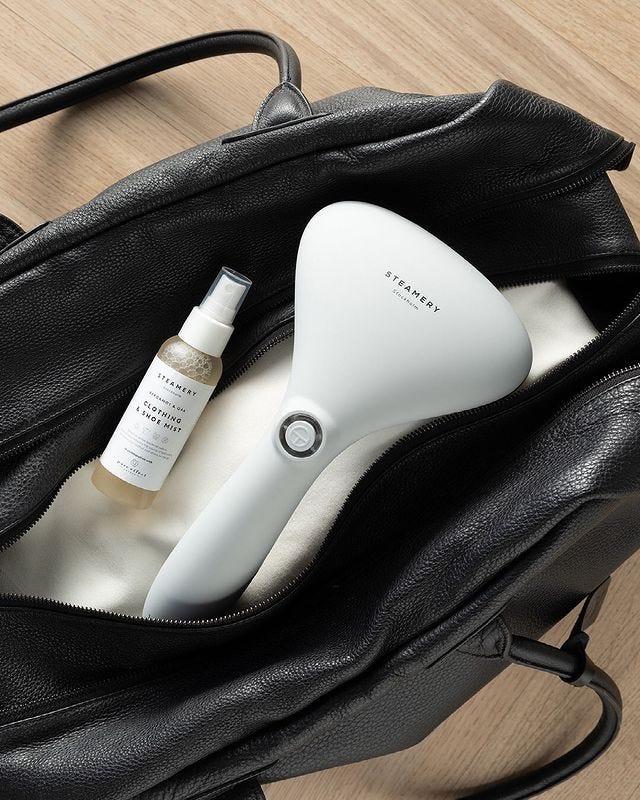Wedding season is officially underway, and this year feels particularly special. Many of us will attend larger celebrations for the first time in a while, which means our party wear may be in need of an update. Every celebration is different, but no matter if it’s in a ballroom or a park, you want to look your best (especially since everyone is a photographer these days).
The three items selected this week will help you knock your wedding-guest look out of the park. And best of all, they can be used season after season. Keep these three things around and you can be wedding-ready in no time.
This week, I’m pleased to share an interview with Amanda Bates, founder of the Black Expat. If you’ve ever considered moving abroad, be sure to keep scrolling for her story and some of her excellent advice.
Cheers to love.
1. Westman Atelier Lip Suede in Les Rouges ($85)
Make no mistake, Westman Atelier, the cosmetics line launched by celebrity makeup artist Gucci Westman, is a luxury line. And while I can’t justify shelling out $58 for a tube of their mascara, this lip palette I highly recommend. At minimum, you get four shades of lipstick in one gorgeous compact. But you actually have far more options than that by mixing the hues together. Having traveled recently for a wedding (and having a piece of luggage lost), I was glad to have options for my final, somewhat-improvised look without needing to pack a dozen tubes.
2. Norma Kamali Diana Gown ($215)
It may have been dubbed the new “it” dress, but this design from NYC legend Norma Kamali is far from new. First debuted in the 1970s, this shirred, asymmetric gown is now available in more than 30 colors of Kamali’s signature four-way stretch Poly Lycra. There’s also a built-in bodysuit, so you can skip the shapewear. I couldn’t be more obsessed with this dress and it works for most nuptials. I have some other Kamali pieces in my closet and I don’t see myself ever getting rid of them—they’re so comfortable, flattering and never wrinkle. And you can’t beat the price.
3. Steamery Cirrus No.2 Handheld Steamer (£120)
If you don’t go for the Diana gown, remember wrinkles are a no-no for formal wear. And your standard hotel-room iron is always terrible. Instead of risking damage or paying to have your clothes pressed, I recommend having a personal steamer to travel with. I have a standing steamer from Stockholm-based Steamery and love its minimal design and ease of use. It helps me remove creases and refresh my clothing quickly, which is why I now have my eye on one of their travel-friendly options. This is their mid-priced model, which can be used on just about anything, anywhere.
It’s time you met … Amanda Bates
Moving abroad is full of challenges, no matter where you end up or why. Finding a community is essential. I came to know of Amanda Bates through Families In Global Transition, an organization I work with for the globally mobile. Her multimedia platform and online community the Black Expat provides valuable resources and support for Black expatriates and showcases their unique experiences living abroad.
Describe the Black Expat in three words.
Black Life Abroad.
What’s the story behind the Black Expat?
Much of the Black Expat was influenced by my own upbringing and experiences. I was born in the U.S. but spent my formative years in Cameroon, where my family is originally from. Living in both societies had an impact on how I saw the world. I went from living in a predominately White, Western society to moving into a predominately Black, African one. It wasn’t until I got older and mentored Black college students about studying abroad that I started thinking more closely about who gets called an expat, and who gets called an immigrant.
While I was looking for resources to highlight for these students who had never traveled, it became apparent there were few stories that talked about Black life abroad. And being part of the large generation of children who were born to Africans who moved abroad following the end of colonialism, I wondered why our parents who came west weren’t called expats but the Westerners who went east were.
That’s how the Black Expat was born in 2016. I wanted to normalize Black international living and share the experiences of those crossing international borders.
Which questions do you get most often from your audience about international living?
It really depends who is asking. If it’s future/potential expats, it’s more the practical questions. Where would be a good place for me (and my family)? How can I fund this adventure? How do I start planning?
None of those are surprising. However, because we are a Black-focused site, some questions often have an intersection of race/ethnicity with them. For example, readers want to know the experience of Black folks in a specific country or where they can find specific hair-care products for particular types of Black hair.
How do you see the Black Expat evolving? What are you most excited about?
A big change was launching the Global Chatter podcast in 2020. Prior to that, most of our storytelling and interviews were in written format on the Black Expat website. However, while we were in the early stages of the Covid-19 pandemic and in the midst of the George Floyd tragedy, I decided that it would be even more impactful to hear Black and Brown people share their stories of life overseas. It’s completely fascinating because there are listeners who don’t necessarily visit the Black Expat website, but stay engaged with the podcast. Because it’s centered on race and identity, that’s the lens that most of the guests explore and share their stories from around the world.
In addition, we get a lot of questions related to both career, entrepreneurship and digital, remote work. Recently, we launched the Roaming Pro that primarily provides resources and courses related to both digital entrepreneurship as well as working abroad.
What advice would you give to someone looking to move abroad for the first time?
Much of the expat literature out there doesn’t quite discuss the diversity of expatriate experiences. A lot of the resources are written from a Western, often White perspective. The truth is no one individual group has a monopoly on what it means to be an expat. Everyone’s experiences are the same. Many of our experiences are influenced by the passports we hold. The experiences of an American expat can be very different from a Togolese expat, for example. In addition, “how you expat” is also important. Moving to a country as a diplomat or a professional is a very different experience than if you move as an economic migrant or an international student.
It’s super important to learn as much as you can from those who have experience with your new host culture. Talk to locals, learn the customs and get a feel for how they embrace their world. Talk to peers who have similar life experiences or stages as you. For example, if you’re a single person, you can certainly get great information about a country from an expat couple who lives where you are going, but then you want to hear the perspectives of single expats in that country as well. You’d be amazed how much people overlook talking to or reading content from others who are in the same stage of life. Trust me, it makes a big difference!
Last week on MIDDI …










